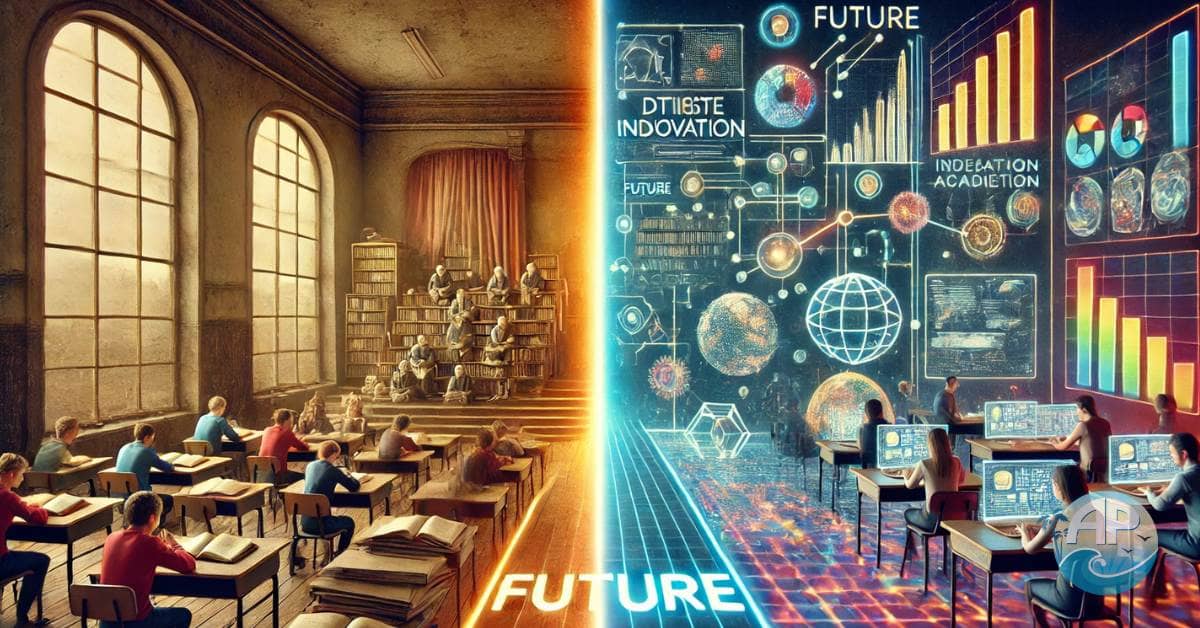Bold ideas are reshaping the world—are you ready to embrace the future?
Table of Contents
- Introduction
- Degrees No Longer Dominate
- The Skills Economy
- Essential in Every Industry
- Downside of Overvaluing Degrees
- Conclusion
Introduction
The world is changing faster than ever. Gone are the days when a framed diploma on the wall guaranteed success. In this new era, it’s not about what degree you hold—it’s about the problems you can solve. Problem-solvers vs. degree holders has become the ultimate battle, and those with bold ideas, practical skills, and adaptability are winning.
Think about this: some of the most successful innovators and leaders didn’t rely on a degree to shape their path. Instead, they leveraged their creativity and ability to solve real-world problems. Problem-solvers bring something invaluable to the table: the ability to apply common sense in practical ways, cutting through complexity to find straightforward solutions. As the landscape shifts, it’s clear that problem-solving will define the future. Are you ready to embrace the change?
Problem-Solvers vs. Degree Holders: Why Degrees No Longer Dominate the Job Market
Problem-Solvers vs. Degree Holders: The Shifting Value of Education
For decades, higher education was seen as the ultimate ticket to success. But in today’s dynamic world, the value of traditional degrees is waning. Employers now prioritize:
- Practical skills: Can you code, design, or lead a team?
- Adaptability: Are you quick to learn and unlearn?
- Creative problem-solving: Can you tackle challenges with innovative solutions?
- Common sense: Can you make sound decisions based on practical understanding?
Degrees often teach theory, but solving real-world problems requires action, hands-on experience, and common sense. Problem-solvers vs. degree holders isn’t just a buzzword; it’s a paradigm shift.
Real-World Examples of Problem-Solvers Thriving
Look no further than icons like Steve Jobs, Elon Musk, and Richard Branson. These pioneers didn’t rely on degrees to make their mark. Instead, they:
- Identified pressing problems.
- Created solutions with far-reaching impact.
- Showed that skills, vision, and common sense outweigh credentials.
The stories of these individuals highlight the importance of grit, determination, and the ability to think outside the box. While degrees can provide foundational knowledge, it’s the application of that knowledge—combined with common sense and the willingness to take risks—that truly drives success.
Problem-Solvers vs. Degree Holders: The Rise of the Skills Economy
What Problem-Solvers Bring to the Modern Job Market
With industries evolving, employers are searching for people who can deliver results, not just credentials. Here’s why problem-solvers vs. degree holders has become a pivotal debate:
- Skills are timeless: Coding, data analysis, and leadership never go out of style.
- Degrees can’t keep up: Universities struggle to adapt curriculums to match market needs.
- Lifelong learning reigns: The future belongs to those who never stop learning.
- Common sense bridges gaps: It’s the thread that ties skills and knowledge together into effective solutions.
Employers increasingly value portfolios, hands-on projects, and problem-solving experiences over a list of academic achievements. This trend reflects the growing realization that the ability to adapt and learn new skills quickly is far more valuable than static knowledge.
How to Thrive as a Problem-Solver
To future-proof your career, focus on:
- Upskilling: Take online courses and attend workshops. Platforms like Coursera, Udemy, and LinkedIn Learning offer a wealth of resources.
- Networking: Surround yourself with like-minded innovators. Attend meetups, join online communities, and engage in collaborative projects.
- Mindset shifts: Embrace challenges as opportunities to grow. View every setback as a learning experience and keep pushing forward.
- Diversifying your skills: Explore areas outside your comfort zone, such as coding, graphic design, or data analysis. Broad skills create more opportunities.
- Applying common sense: Learn to assess situations practically and make sound judgments that yield effective outcomes.
By embracing these strategies, you position yourself as a dynamic contributor who can adapt to any industry’s needs.
Problem-Solvers vs. Degree Holders: Why They Are Essential in Every Industry
Big Problems Demand Bold Problem-Solvers
From climate change to technological advancements, the world’s challenges need thinkers who can innovate. Here are some key industries where problem-solvers shine:
- Technology: Building smarter, faster, and safer systems. Artificial intelligence, blockchain, and cybersecurity demand constant innovation.
- Healthcare: Innovating treatments and improving global health.
- Entrepreneurship: Creating products that solve unmet needs. Startups thrive on identifying gaps and delivering solutions that change lives.
The need for problem-solvers isn’t limited to these industries. Fields like education, renewable energy, and social work also require innovative approaches to longstanding issues. The ability to think critically, apply common sense, and act decisively is a universal asset.
Real-World Impact of Problem-Solvers
Consider how problem-solvers changed history:
- The Wright brothers solved the challenge of flight, opening new possibilities for travel and commerce.
- Marie Curie revolutionized science with her discoveries, paving the way for advancements in medicine and physics.
- Entrepreneurs like Jeff Bezos reshaped commerce, creating a global marketplace accessible to anyone with an internet connection.
Their success underscores a critical truth: problem-solvers drive progress. They don’t wait for solutions—they create them, guided by a mix of knowledge, innovation, and common sense.
Problem-Solvers vs. Degree Holders: The Downside of Overvaluing Degrees
The Pitfalls of Traditional Education
Relying solely on degrees can:
- Lead to stagnation: Focusing on outdated knowledge that doesn’t align with current industry demands.
- Create financial burdens: Rising tuition costs often leave graduates with significant debt and no guarantee of return on investment.
- Foster a false sense of security: A degree doesn’t equate to skills. Graduates may find themselves unprepared for the challenges of the real world.
- Overlook the importance of practical judgment: Degrees often fail to teach students how to apply their learning in real-world scenarios.
While education provides a foundation, it’s crucial to recognize its limitations. Degrees are tools, not guarantees. Those who rely solely on their academic credentials risk being left behind in a world that values action, adaptability, and common sense over theory.
Problem-Solvers vs. Degree Holders: Why the Future Belongs to Problem-Solvers
The battle of problem-solvers vs. degree holders isn’t about dismissing education; it’s about evolving with the times. While degrees have their place, the future belongs to those who can think critically, act decisively, and solve problems creatively. The ability to adapt, innovate, and continuously learn is the ultimate skill set in today’s fast-paced world. Common sense serves as the foundation for applying these skills effectively, ensuring practical and impactful solutions.
Ready to unlock your potential? Check out these related posts to help you thrive:
- Step Outside Your Comfort Zone and Unlock Your True Potential
- Why Freedom Isn’t Free: The Hidden Costs of True Freedom
- Brotherhood and Freedom: Unlocking the Power of Connection
Embrace the future with courage, curiosity, and the drive to solve problems. The world doesn’t need more degrees—it needs more doers like you.


